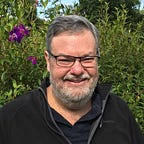When authenticity means not being yourself
“Take chances — make mistakes. That’s how you grow. Pain nourishes your courage. You have to fail in order to practice being brave.” Mary Tyler Moore
In a quiet moment, mid coaching conversation, high above the city, the client, Sam said, “I’m actually totally confused. People tell me to be authentic… to stick to my values and my true self. And yet, here you are giving me advice to change some of those things.”
Authenticity has become something of a loaded term, particularly in personal development.
On the one hand we’re told that authenticity, being our ‘true selves’ and ‘living our values’, is integral to living a good life; to integrity; to being a role model and someone that others will look up to. We’re promised that maintaining coherence with a personal value set will allow us to stand tall in the world and avoid the tension and anxiety that surfaces when behaviour is inconsistent with how people think the world ought to work.
And yet, on the other hand, the developmental process — improvement, growth, learning — suggests we have to become something different than we were before.
The question is, what has to be different and to what extent?
Robert Kegan, the Harvard constructive developmental theorist says:
“Every person who is really willing to put themselves in learning mode is someone who is willing to say… there’s something limited about me as I now stand, I need something more. So learning is putting yourself in a position where you acknowledge at some level that ‘I’m limited, I’m not fully done’. That can be a very difficult thing.”
We’re at our best when we’re learning, growing and evolving to meet the challenges that the world is throwing at us. Adult stage development theories suggest that development is not just about learning new skills and accumulating new knowledge. It’s also about how we expand our perspectives and frames of reference for how we make sense in the world. It involves asking ourselves: to what extent is my sense of identity, my sense of self and of who I am and need to be in the world, predicated on how I want to appear to others, or how I want others to see and judge me; versus being built on a foundation of my most choiceful purpose and values? And how can I grow into my fullest potential in pursuit of that purpose?
The important question about authenticity is… authentic to what? If we grow and evolve through developmental stages which are progressively more inclusive and expansive — and are defined by how we make sense of ourselves and our place in the world — then it’s possible to imagine a different authenticity at each of those stages. As we develop, our sense of our authentic self must shift, grow and enlarge. The risk is that at points in time, we can think that we’ve arrived, that we’ve come to know ourselves — our ‘true’ selves. Yet it’s that very sense of knowing which closes off curiosity and the wonder of what else have we yet to uncover, the other potential resting in our inner horizons.
And here’s the dilemma for Sam. Is he holding onto a self that he and others know well and are (to some extent) comfortable with? Or is he open to seeing himself and his place in the world with new eyes? Is he willing to surprise himself with what else is possible?
A quest for authenticity can hold us in place and keep us stuck: it can be a holding true to a past self, a self that is smaller, less influential, less purposeful than that which we can become. Development is awkward, it makes us vulnerable, unsure, and often a little anxious as we find our way from the old to the new. This is true whether we’re talking about improving our tennis backhand, our ability to write Board papers, cook Vietnamese food, coach our teams or become more open, vulnerable and courageous in the world.
The poet David Whyte suggests that in growth and development, when we first appear in a new epoch, a new stage of our lives, we don’t know ourselves…
“It’s like meeting the new you in the form of a stranger, you’re not fully visible yet”
…and that we shouldn’t rush to judge, to name, to label this newness. Giving it a name (“I am now courageous, a good coach or can cook Vietnamese”) can close off the emergence of what else is still possible.
Whyte writes in his poem, “Blessing for the Morning Light”,
“May what is yet to be seen in you become your gift to give”
And so it might be appropriate to ask…
Is authenticity a crutch for you to hold onto the past, or is it a courageous expression of how difficult you’re finding the process of growing into your fullest potential?
The Samurai Analects are a growing collection of ‘observations from the field’ that we like to share with clients and friends as we explore some of the tensions and openings we find in our work
